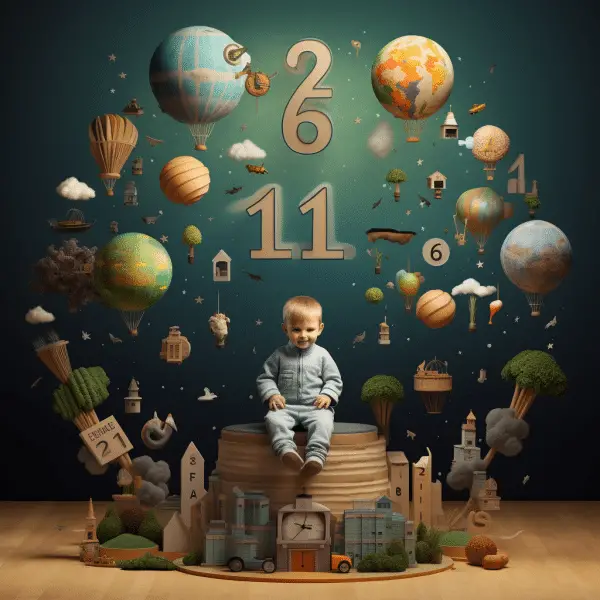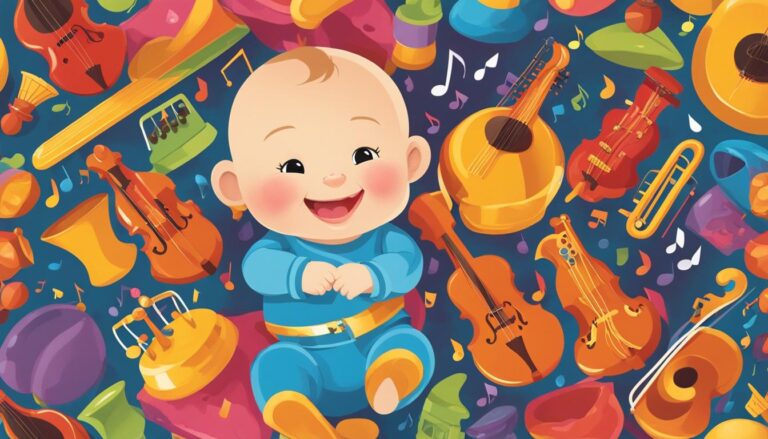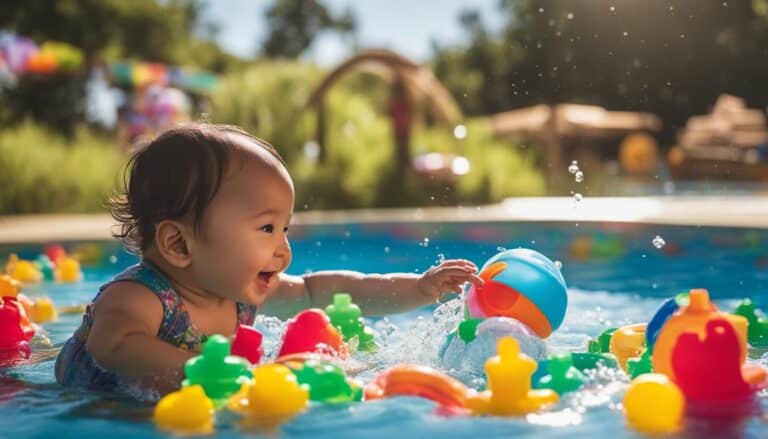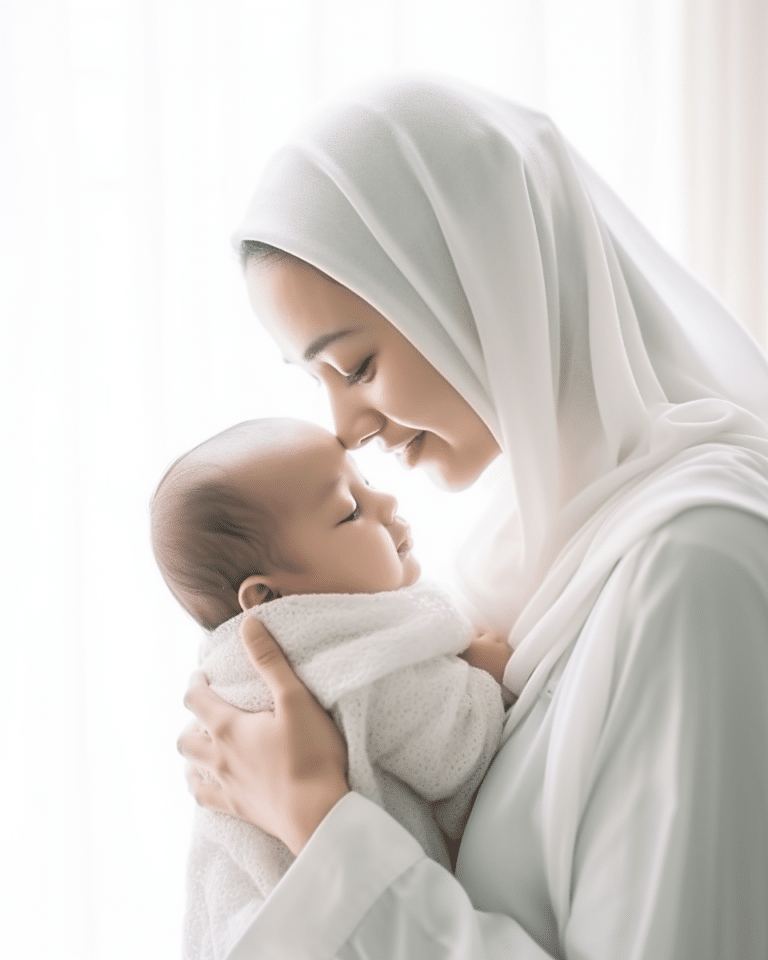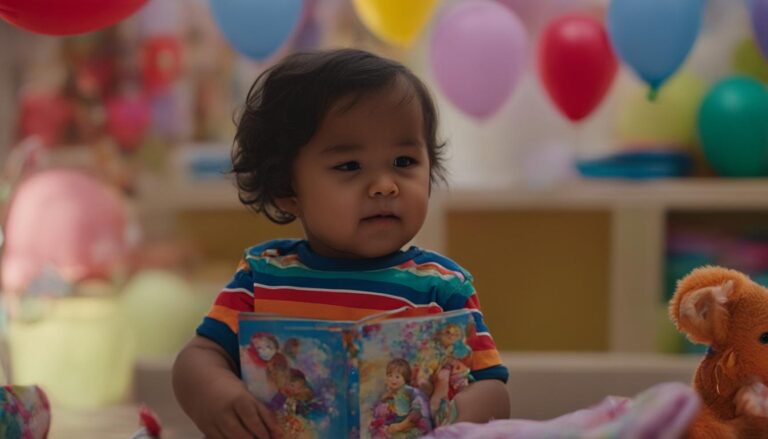Baby’s First Steps: A Journey of Growth
Your baby’s growth and development in the first year is an incredible journey filled with milestones. From the moment they are born, their growth and development progress rapidly. Each month brings new abilities and discoveries. Let’s explore the key milestones your baby reaches during their first year based on factual data from multiple sources.
Key Takeaways:
- Baby’s first steps are an important milestone in their overall growth and development.
- Celebrate and cherish each stage of their journey, from cuddles to independent strides.
- Remember, every child develops at their own pace, so avoid comparing them to others.
- Enjoy the journey and embrace each milestone along the way.
- Signify the incredible growth and progress your baby has made.
Month 1: Cuddling, Sleeping, and Feeding
During the first month of your baby’s growth and development, their primary focus is on cuddling, sleeping, and feeding. As they adjust to the outside world, they rely on you for comfort and nourishment. It is a precious time of bonding and getting to know each other.
At this stage, your baby’s sleep patterns are still developing, and they may sleep for long stretches during the day and night. It’s important to establish a soothing bedtime routine and create a calm sleep environment to support their restful sleep. Remember to always place your baby on their back to sleep to reduce the risk of Sudden Infant Death Syndrome (SIDS).
Feeding your baby is another crucial aspect of their first month. Whether you choose to breastfeed or formula feed, ensuring they receive proper nutrition is essential for their growth and development. If you have any concerns or questions, consult with your pediatrician or a lactation consultant for guidance and support.
Month 1: Cuddling, Sleeping, and Feeding
| Activities | Recommendations |
|---|---|
| Cuddling | Hold and cuddle your baby often to provide comfort and nurture the bond between you. |
| Sleeping | Create a peaceful sleep environment by dimming the lights, playing calming music, and establishing a consistent bedtime routine. |
| Feeding | Follow your baby’s feeding cues and ensure they are getting enough milk or formula for their nourishment and growth. Consult with a healthcare professional if you have any concerns. |
“The love and care you provide during this first month are crucial for your baby’s well-being and emotional development.” – Dr. Emily Thompson, Pediatrician
Remember that every baby is unique and develops at their own pace. While this guide provides a general outline of what to expect during the first month, it’s important to trust your instincts as a parent and reach out for support whenever needed.
Month 2: Growing Fast and Becoming Alert
During the second month of your baby’s growth and development, you will notice rapid changes as they continue to grow and become more alert. Their physical abilities, as well as their cognitive and social skills, will start to show significant progress.
The most noticeable change during this period is their physical growth. Your baby will gain weight and length as they build muscle and develop their motor skills. They will start to make more purposeful movements with their arms and legs, and their reflexes will become more coordinated.
Another exciting milestone during the second month is your baby’s increased alertness. They will become more responsive to their surroundings, making eye contact and focusing on objects. You may notice them following your movements with their eyes or turning their head towards sounds. This newfound attention and curiosity are signs of their growing awareness of the world around them.
| Development Milestones | Description |
|---|---|
| Growing Body Control | Your baby’s movements become more purposeful as they gain control over their body |
| Improved Eye Contact | They begin to make eye contact and focus on objects, showing increased alertness |
| Making Sounds | Your baby starts vocalizing more, making cooing sounds and experimenting with different sounds |
| Tracking Objects | They can track moving objects with their eyes, showing improved visual tracking skills |
As your baby grows and becomes more alert during their second month, it’s important to provide a stimulating environment for their continued development. Engage in gentle play and interaction, talk to them frequently, and provide colorful toys to stimulate their senses. Remember to always respond to their cues and provide a nurturing and loving environment that supports their growth.
Month 3: Forming Strong Attachments and Smiling
At three months old, your baby experiences significant developmental milestones as they continue to grow and explore the world around them. One of the most remarkable changes during this stage is the formation of strong attachments to their primary caregivers, such as parents or guardians. Your baby will demonstrate a sense of recognition and preference for familiar faces, responding with smiles and delight at the sight of their loved ones.
Smiling becomes an essential aspect of your baby’s social interaction as they develop their communication skills. They will engage in reciprocal smiles, responding to your smiles and expressions with their own joyful grins. This back-and-forth interaction strengthens the bond between you and your little one, fostering a sense of security and trust.
As your baby continues to develop, their ability to communicate their needs and emotions becomes increasingly refined. They may start producing various sounds, cooing and babbling as they experiment with their vocal abilities. These charming vocalizations not only indicate your baby’s language development but also provide opportunities for engaging back-and-forth conversations with you. Responding to your baby’s coos and babbles with enthusiasm and imitation helps nurture their language skills and lays the foundation for future communication.
Social Milestones at Three Months Old:
- Forming strong attachments to primary caregivers
- Responding with smiles and recognizing familiar faces
- Engaging in reciprocal smiles
- Experimenting with vocalizations, cooing, and babbling
“The smile of a baby is pure. It conveys innocence, joy, and unconditional love.”
During this stage, it’s important to provide your baby with a nurturing and stimulating environment to support their continued growth and development. Spend quality time engaging in interactive play, talking, and singing to them. Encourage their blossoming social skills by introducing them to new faces and safe social settings, allowing them to observe and absorb the world around them. With each passing day, your baby is becoming more aware and responsive, paving the way for future milestones in their journey of growth.
| Month 3 Milestones | Developmental Milestones |
|---|---|
| Forming strong attachments | Recognizing familiar faces and responding with smiles |
| Initiating back-and-forth interactions | Engaging in reciprocal smiles |
| Exploring vocalizations | Experimenting with cooing and babbling |
Month 4: Gaining Control and Improved Senses
At four months old, your baby continues to amaze you with their rapid development. During this month, they gain more control over their actions and their senses become more refined, allowing them to explore the world in new ways. Let’s take a closer look at the key milestones your little one will reach during their fourth month.
Improved Motor Skills
By the fourth month, your baby’s motor skills start to improve significantly. They may begin to reach for objects, grab onto them, and even bring them to their mouth. You’ll notice more intentional movements as they start to understand cause and effect. Encourage their exploration by providing safe toys and objects for them to manipulate.
Better Vision and Hearing
During the fourth month, your baby’s vision and hearing continue to develop, allowing them to interact with their environment in new ways. They can now track moving objects with their eyes and may even start to reach out towards them. Their hearing also becomes more acute, and they enjoy listening to your voice and other sounds around them.
| Milestone | Description |
|---|---|
| Reaching and Grasping | Your baby starts to reach for objects and grasp them, improving their fine motor skills. |
| Tracking Objects | They can now follow moving objects with their eyes, showing improved visual coordination. |
| Recognizing Familiar Faces | Your baby becomes better at recognizing familiar faces and may show excitement when they see loved ones. |
Table: Key Milestones at 4 Months
The fourth month marks an exciting time in your baby’s growth and development. Celebrate their achievements and continue to provide a stimulating and nurturing environment to support their progress.
Month 5: Rapid Growth and Sitting Preparation
At five months old, your baby undergoes a period of rapid growth and development. They are becoming more inquisitive about the world around them, eagerly exploring their surroundings and building their cognitive and physical skills.
One of the notable milestones during this month is your baby’s preparation for sitting independently. They begin to show improved head control and may be able to sit with support. You can encourage this skill by providing a comfortable and safe space for them to practice sitting, using pillows or cushions for support.
Additionally, at five months old, your baby may also start preparing for solid foods. While breast milk or formula is still their primary source of nutrition, you can introduce them to a variety of pureed foods. Consult with your pediatrician to ensure you are following the appropriate guidelines for introducing solids and to address any specific concerns or questions you may have.
| Milestones | Description |
|---|---|
| Sitting Preparation | Improved head control and ability to sit with support |
| Solid Food Introduction | Gradual introduction of pureed foods alongside breast milk or formula |
| Language Development | Babbling and making a wider range of sounds |
| Gross Motor Skills | Rolling from back to tummy and vice versa, potentially attempting to push up onto hands and knees |
Language development also takes a significant leap at this stage. Your baby will likely be babbling more and experimenting with a wider range of sounds. Engage in conversation and respond to their vocalizations to encourage further language development.
Lastly, your baby’s gross motor skills continue to progress. They may start rolling from their back to their tummy and vice versa, as well as attempting to push up onto their hands and knees. This increased mobility is an exciting step towards further exploration and independence.
Month 6: Improved Coordination and Word Recognition
At six months old, your baby continues to make remarkable progress in their growth and development. During this stage, they exhibit improved coordination and begin to recognize specific words, making exciting strides in their cognitive and physical abilities.
Their coordination becomes more refined as they gain better control over their movements. They can now grasp objects with greater precision, exploring them with curiosity. You may notice their hand-eye coordination improving as they reach for and manipulate objects, enhancing their fine motor skills.
In addition to their physical development, your baby also starts recognizing and responding to specific words. They may turn towards you when you call their name or respond with a smile when you use certain familiar words or phrases. This indicates their increasing understanding of language and the world around them.
As your baby becomes more engaged with their surroundings, it’s important to create a stimulating environment that encourages their continued growth. Provide a variety of age-appropriate toys and activities to further enhance their coordination and cognitive development.
| Growth and Development Milestones at 6 Months | Examples |
|---|---|
| Gross Motor Skills | Sitting with support, rolling over, beginning to push up onto hands and knees |
| Fine Motor Skills | Reaching and grasping objects, transferring objects between hands |
| Social and Emotional Development | Increased engagement with caregivers, recognizing familiar faces |
| Language and Communication | Responding to their name, babbling with consonant sounds, recognizing familiar words |
| Cognitive Development | Exploring objects with curiosity, understanding cause and effect |
Remember, every baby develops at their own pace, and it’s important not to compare your little one to others. Celebrate their unique milestones and provide a nurturing environment that supports their individual growth and development.
Month 7: Sitting Up and Solid Food Intake
At seven months old, your baby is reaching an exciting stage of development. They may have already mastered rolling over and are now working on sitting up on their own. You’ll be amazed at how quickly they gain strength and control over their body.
During this month, you’ll notice your little one’s improved coordination and balance as they sit upright, unsupported. They will begin to use their hands to explore objects, further enhancing their fine motor skills. It’s a good time to introduce interactive toys that encourage reaching, grasping, and exploring.
“The joy on your baby’s face when they sit up independently for the first time is priceless. It’s a significant milestone that opens up a whole new world of possibilities for them.”
Additionally, at seven months old, your baby’s digestive system is maturing, making it the perfect time to introduce solid foods into their diet. Start with simple purees, such as mashed fruits or vegetables, and gradually introduce new flavors and textures. Remember to consult your pediatrician for guidance on when and how to start solids, as well as any potential allergenic foods to avoid.
As your baby continues to grow and develop, make sure to provide a safe and supportive environment for them to explore and learn. Encourage their progress as they gain independence and prepare for further milestones in the months to come.
| Milestone | Description |
|---|---|
| Sitting up on their own | Baby can maintain a seated position without support |
| Exploring objects | Baby uses their hands to investigate and manipulate toys or objects |
| Introduction of solid foods | Baby starts consuming purees and explores new tastes and textures |
Baby’s Growth and Development at 8 Months Old
At eight months old, your baby is entering a stage of increased exploration and learning. They are becoming more mobile and curious about the world around them. This is a time of rapid development as they continue to grow physically, cognitively, and socially.
Physically, your baby may be sitting confidently on their own and even starting to pull themselves up to a standing position with support. They may also be attempting to crawl or scoot around, using their newfound mobility to explore their surroundings. These physical milestones are important indicators of their growth and increasing independence.
Cognitively, your baby is developing their problem-solving skills and may begin to imitate simple actions. They are also starting to understand cause and effect relationships, such as dropping a toy to see what happens. This is an exciting period of cognitive growth as they become more aware of their environment and begin to actively engage with it.
Socially, your baby is becoming more interactive and expressive. They may be babbling, making new sounds, and responding to their name. They may also show a growing attachment to familiar people, seeking comfort and security from their caregivers. This emotional development is crucial for building trust and forming strong relationships.
| Physical Development | Cognitive Development | Social Development |
|---|---|---|
| Sitting confidently on their own | Imitating simple actions | Forming stronger attachments |
| Pulling up to a standing position with support | Understanding cause and effect relationships | Showing increased responsiveness to their name |
| Attempting to crawl or scoot | Engaging with and exploring the environment | Seeking comfort and security from caregivers |
As your baby continues to grow and develop at their own pace, it’s important to provide them with a safe and stimulating environment that encourages their exploration and learning. Engage with your baby through play, talk to them frequently, and offer plenty of opportunities for sensory experiences. Celebrate each milestone they achieve and cherish this remarkable journey of growth.
Month 9: Developing Personality and Forming Attachments
At nine months old, your baby’s growth and development continue to amaze you. During this stage, they begin to develop their unique personality and form stronger attachments with people around them. It’s a beautiful phase in their journey of growth.
As your baby approaches the nine-month mark, you may notice their individuality shining through. They may display preferences for certain toys, activities, or even people. They are starting to show their likes and dislikes, giving you a glimpse of their developing personality.
In addition to their emerging personality, your baby is also forming stronger attachments with loved ones. They may become more selective about who they interact with and show a greater desire for comfort and affection from familiar faces. This is a natural part of their social and emotional development.
During this period, your baby’s interactions become more interactive and engaging. They may respond to their name, smile, and babble more frequently. Their communication skills are evolving, and they may even use gestures to express their needs and desires. It’s an exciting time as you witness their growing ability to connect with the world around them.
| Developmental Milestones at Nine Months: |
|---|
| 1. Developing a unique personality |
| 2. Forming stronger attachments with loved ones |
| 3. Showing preferences for specific toys, activities, and people |
| 4. Increasing communication skills through smiling, babbling, and gestures |
Month 10: Active and Mobilizing
As your baby reaches the 10-month mark, their energy levels soar, and they become incredibly active. They are constantly on the move, exploring their surroundings with curiosity and enthusiasm. Crawling becomes their primary mode of mobility, as they navigate their way through different rooms and spaces. Their physical development has reached a point where they can independently maneuver and explore their environment.
It’s important to create a safe and baby-proof environment during this stage to ensure their exploration is free from potential hazards. Secure cabinets, cover electrical outlets, and remove any objects that may pose a choking risk. Soft padding on the floor can provide a cushioned surface for them to crawl and explore freely.
At this age, your baby’s cognitive skills are also developing rapidly. They begin to understand cause and effect relationships and may enjoy engaging in simple problem-solving activities. Offer them toys that require a bit of manipulation, such as stacking blocks or shape sorters, to encourage their cognitive development.
Active Play Ideas for 10-Month-Olds
- Obstacle Course: Set up a safe and age-appropriate obstacle course using pillows, cushions, and tunnels. Encourage your baby to crawl through, climb over, and explore the different elements.
- Music and Movement: Play lively music and dance with your baby. Encourage them to clap their hands, stomp their feet, and wiggle to the rhythm. This promotes their physical coordination and helps them develop a sense of rhythm.
- Peek-a-Boo: Engage in playful games of peek-a-boo to stimulate their cognitive and social development. Use blankets or your hands to hide your face and reveal it with a joyful surprise.
“Play is the highest form of research.” – Albert Einstein
Remember, each baby develops at their own pace, so don’t compare their progress to others. Celebrate each milestone and enjoy this active and exciting stage of your baby’s growth and development.
| Month 10 Milestones | Description |
|---|---|
| Gaining Mobility | Your baby begins to crawl and explore their surroundings with increased agility and speed. |
| Object Manipulation | They can pick up smaller objects between their thumb and fingers and enjoy exploring their textures. |
| Increased Independence | They may attempt to feed themselves using their fingers and start showing signs of wanting to do things on their own. |
| Improved Communication | They may use gestures or babble more to communicate their needs and desires. |
Month 11 and 12: Almost a Toddler and First Steps
As your baby approaches the end of their first year, they are on the cusp of becoming a toddler. Months 11 and 12 mark a thrilling time in their growth and development, filled with new milestones and achievements. During this period, you can expect your little one to become more independent, mobile, and even take their first steps!
Development Milestones
At this stage, your baby’s mobility greatly increases. They may start crawling around, pulling themselves up to stand, and cruising along furniture. These movements signify their growing strength and coordination as they prepare for their first independent steps. It’s an exciting time to witness their determination and perseverance as they navigate their surroundings.
Along with their physical development, your baby’s cognitive skills continue to evolve. They become more curious and may spend longer periods exploring objects, using their newfound motor skills. Their communication skills also improve, as they try to imitate words and gestures they observe from their caregivers.
Baby’s First Steps
One of the most anticipated milestones during months 11 and 12 is your baby’s first steps. While every child develops at their own pace, many babies take their first independent strides around this time. It’s important to create a safe environment for them to practice their newfound skills and offer support and encouragement as they take those wobbly first steps.
Remember that walking is a complex skill, and it may take some time for your baby to gain confidence and stability. Some babies prefer to hold onto furniture or walk while holding your hand for added support. Others may take a few steps and then go back to crawling for a while. Each baby has their unique journey, so embrace their individual pace and celebrate every small achievement!
Conclusion
Months 11 and 12 are an exciting time in your baby’s growth and development. They are on the brink of toddlerhood, demonstrating increased mobility, cognitive abilities, and taking their first independent steps. Cherish these precious moments and provide a nurturing environment for them to explore and discover the world around them. Remember, every milestone is a testament to their incredible journey of growth!
| Milestone | Development |
|---|---|
| Mobility | Crawling, pulling up to stand, cruising along furniture |
| Cognitive Skills | Curiosity, exploring objects, imitating words and gestures |
| First Steps | Independently walking or taking wobbly first steps |
Conclusion
Your baby’s first steps are an important milestone in their overall growth and development. From those initial cuddles to their first independent strides, each stage of their journey is filled with wonder and joy.
Celebrate and cherish these moments as they signify the incredible growth and progress your baby has made. Remember that every child develops at their own pace, so don’t compare them to others. Enjoy the journey and embrace each milestone along the way.
As your baby takes their first steps, they are embarking on a new phase of exploration and independence. These first steps mark the beginning of their journey toward walking confidently and discovering the world around them.
Whether it’s those wobbly first attempts or the steady strides that follow, each step is a testament to your baby’s determination and progress. So, cheer them on and be there to support and guide them as they navigate this exciting milestone of their development.
FAQ
What are the key milestones in a baby’s first year?
Some key milestones in a baby’s first year include forming attachments, improved coordination, sitting up, exploring the world, developing personality, crawling, and taking their first steps.
How can I encourage my baby’s growth and development?
You can encourage your baby’s growth and development by providing a safe and stimulating environment, interacting with them through talking and playing, offering age-appropriate toys and activities, and providing a balanced diet.
My baby doesn’t seem to be reaching certain milestones as quickly as others. Should I be concerned?
Every child develops at their own pace, so it’s important not to compare your baby to others. However, if you have concerns about your baby’s development, it’s always best to consult with their pediatrician.
When should my baby start walking?
Most babies start walking between 9 and 15 months, but the exact timing can vary. Some babies may start walking earlier, while others may take a little longer. It’s important to remember that every child is different.
What can I do to support my baby’s first steps?
To support your baby’s first steps, you can create a safe and open space for them to practice, offer support and encouragement, and provide opportunities for them to strengthen their leg muscles, such as through tummy time and assisted walking.
How can I keep track of my baby’s milestones?
Keeping a milestone journal or using a baby development app can help you keep track of your baby’s milestones. You can note down when they achieve certain skills or behaviors and look back on their progress over time.
What should I do if I notice any delays or concerns in my baby’s development?
If you notice any delays or concerns in your baby’s development, it’s important to speak with your pediatrician. They can assess your baby’s development and provide guidance or refer you to a specialist if necessary.

